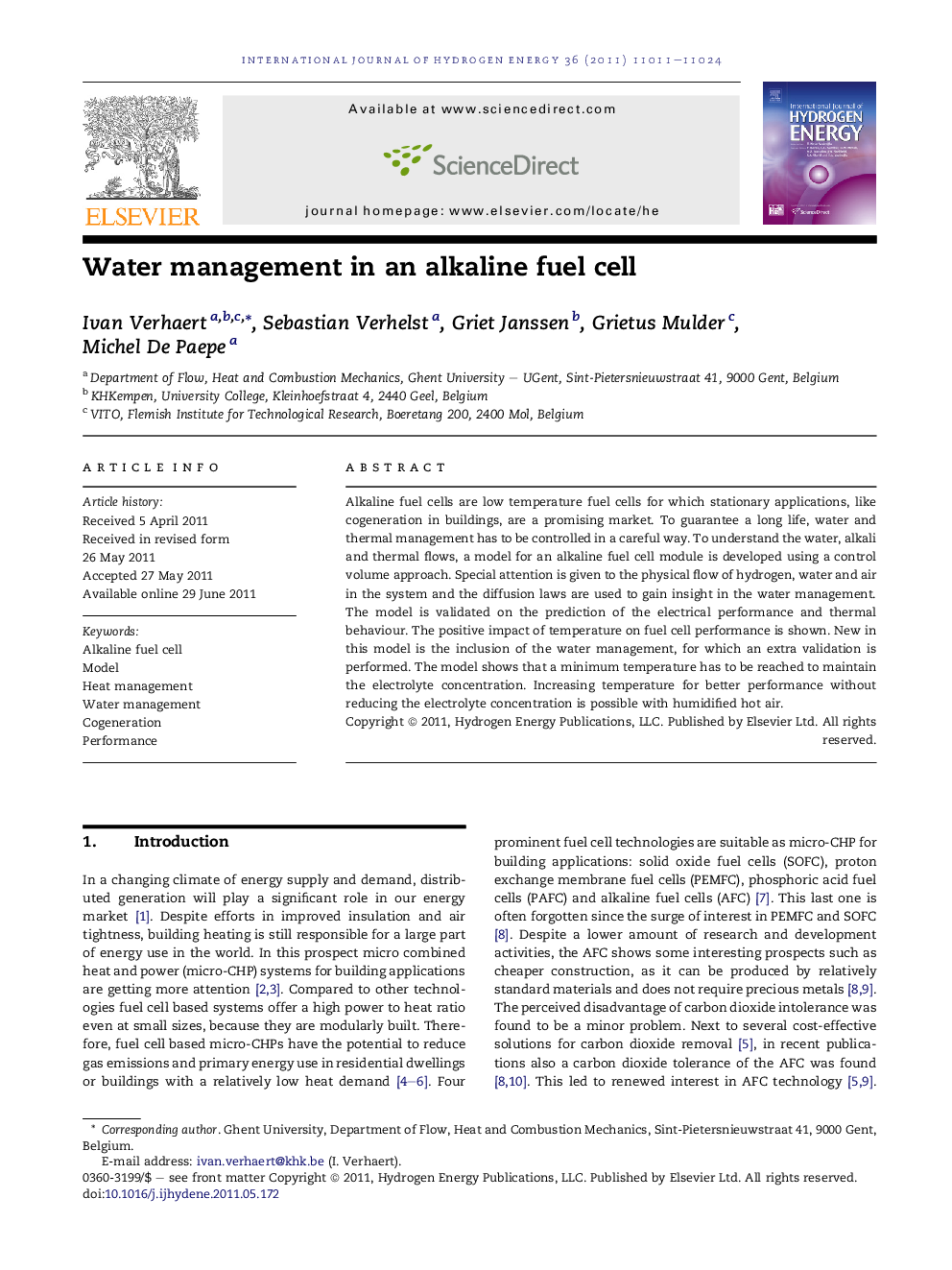| Article ID | Journal | Published Year | Pages | File Type |
|---|---|---|---|---|
| 1277572 | International Journal of Hydrogen Energy | 2011 | 14 Pages |
Alkaline fuel cells are low temperature fuel cells for which stationary applications, like cogeneration in buildings, are a promising market. To guarantee a long life, water and thermal management has to be controlled in a careful way. To understand the water, alkali and thermal flows, a model for an alkaline fuel cell module is developed using a control volume approach. Special attention is given to the physical flow of hydrogen, water and air in the system and the diffusion laws are used to gain insight in the water management. The model is validated on the prediction of the electrical performance and thermal behaviour. The positive impact of temperature on fuel cell performance is shown. New in this model is the inclusion of the water management, for which an extra validation is performed. The model shows that a minimum temperature has to be reached to maintain the electrolyte concentration. Increasing temperature for better performance without reducing the electrolyte concentration is possible with humidified hot air.
► Development of a validated model for an AFC including water management and thermal behaviour. ► Analysis of the operating input parameters in order to maintain electrolyte concentration. ► The minimum electrolyte temperature to maintain concentration rises with the electric current. ► The electrolyte temperature can be increased without dry out of the stack using hot humidified air. ► An air ratio higher than 2.5 is not effective anymore to control the water management.
